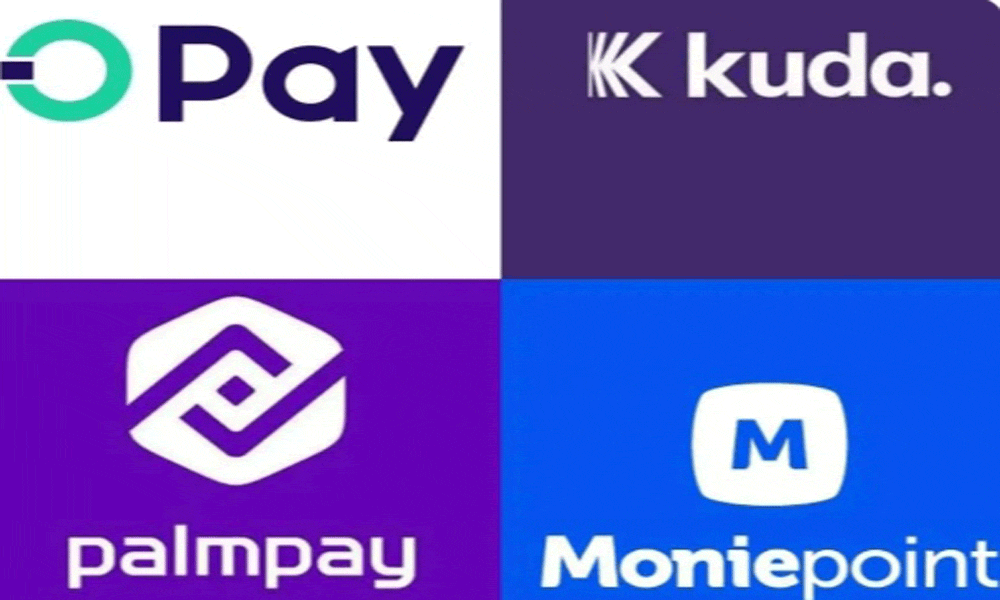The Nigerian movie industry:- A Damsel in Distress
The recent move by the Federal Government of Nigeria to adopt phase II of the African Continental Free Trade Area Agreement (phase II protocols which cover investment protection and intellectual...

The recent move by the Federal Government of Nigeria to adopt phase II of the African Continental Free Trade Area Agreement (phase II protocols which cover investment protection and intellectual property rights) has been greeted with mixed feelings and emotions (nairametrics.com 24/11/2022).

Some schools of thought have argued this is just another pathetic charade by the Federal Government more like a travesty or readily perceived pretense while another school of thought with a positive mindset considers it a watershed and tipping point that points to a new wave of foreign direct (FDI) and private equity investments.
With the incursion of Netflix into the mainstream, it appears the damsel in distress being unable to help herself may have found a rescue just like the unrequited romantic plot between King Kong and Anne
Anne is captured by natives and offered as a delectable sacrifice for Kong but rather than eat her up Kong is enamored by her beauty. The Nigerian Film industry seems to have caught the attention of the majors with Netflix leading the line.
Netflix and co seem to be besotted by her beauty and the reputation as the second largest movie industry in the world now; there is even a masterclass hosted by Jodie Foster about the Nigerian Film Industry
However it remains to be seen if the Damsel would be preserved and worshipped or devoured this time around by King Kong. One major feature or common trend in the Nigerian movie industry is bootstrapping within the value chain.
Bootstrapping echoes the lack of funding options, a perennial dilemma for independent movie producers and directors in Nigeria which over the years has stifled the growth of the movie industry in terms of quality and output.
Will a unified intellectual property protocol within the realm of ACFTA curb this trend or is it another tale of putting the cart before the horse?
The above poser becomes even more legitimate when the musings of Siver A Ojeison is considered anon;
“The article submits that sustainable sources of funding are obviously lacking on the Nollywood scape, making it difficult for indigenous producers to carry out their prospects of filmmaking. To forestall a breakdown of production apparatuses, the independent producers and corporate film outfits are encouraged to forge a synergy both within and outside the shores of Nigeria for greater productivity”.
THE LEGAL FRAMEWORK
The National Film and Video Censors Board Act:- A colonial vestige
This legislation is a shot in the dark and can best be described as a colonial vestige. It is riddled with neo-classical imprints and ought to be overhauled in its entirety to give room for fresh air and innovation consistent with the modern trends in the movie industry and film business globally and within the continent.
Majority of its provisions including the penal provisions are stale and unrealistic judging from developments in the modern economy.
Ghana for instance played host to the first Cinema Convention in Africa earlier this year as Nigeria seems comfortable in the rearview mirror despite its status as the African Giant.
The Nigerian Film Broadcasting Corporation Act
This piece of legislation is mundane and out of sorts. It is also a relic of colonialism and deserves a complete overhaul.
Cinematograph Act
This is another moribund piece of legislation lacking rhythm and quite inconsistent with the era of digital content and broadcasting.
Copyright Act
The draft copyright bill 2015 has tarried for too long in the red chamber. The evolution of Video on Demand and other Over the top (OTT) services have made the regime of broadcasting and digital content services torrid and nebulous.
A proper Legal Framework is of urgent national importance to attract foreign Direct Investments (FD1) and foster intra African trade.
The highpoint of the fragmentation of laws was the sixth amendment to the National Broadcasting Code by the Minister charged with the responsibility for Information in August 2020.
The objective of the code was to mandate broadcasters and content providers as rightsholders to subcontract their exclusive rights for a regulated fee under the watchful eye of the Commission and the minister charged with the responsibility for information
The Likes of Netflix and Iroko TV kicked against this as foreboding and ominous having the potential to stifle the industry and discourage investment. The timely intervention of the Federal High Court declaring the amendment unconstitutional and a violation of the right to property under Section 44 of the CFRN was the chill pill that offered the relief the content providers craved.
The African Continental Free Trade Area Agreement (ACFTA)
Will the African Continental Free Trade Area prove to be the dark horse or is it another shot in the dark?
The regime of ACFTA was brought to life earlier in January 2022 with some outstanding protocols yet to be negotiated one of which is the protocol on Intellectual property and investments.
The Federal Government has yet again in the month of November 2022 announced the move to negotiate Phase 11 of the AFCTA protocol on Intellectual Property and Investment. This shows good signs of promise for the cultural creative industry including the Film Industry.
The impact of the protocol should ordinarily be pronounced in the area of pricing of intellectual property assets but the lack of cohesion of the existing laws and the primordial language of the texts is a disincentive that suggests negotiating a phase 11 protocol without a prior house-keeping exercise by a deliberate clean-up of the municipal and existing laws is a sheer waste of time more like announcing a dud event.
Critics have argued in favor of a decentralized government or a true federation with viable federating units to make for a robust tax regime to aid prosperity by means of an efficient tax administration to make it possible to charge the Netflix tax and other digital tax on digital product and services under which broadcasting and film distribution may incidentally be captured or subsumed.
Little wonder a nibble attempt by the Lagos State Film and Video Censors Board to charge like a Netflix tax on contents distributed in the state in 2020 met a brick-wall with aggressive push-backs.
The trinitarian value chain of production distribution and exhibition
The trinity of production, Exhibition and distribution are sacrosanct in the process of film making and over the years the whys and wherefores of the entire process have been the object of study and research by commentators and investors alike towards a sustainable and institutional framework by benchmarking the products on offer with the set standards in Hollywood and other jurisdictions with pedigree in the global film industry network.
Simply put production entails the stage of conception, funding/bootstrapping(the art of self-funding of movies by independent producers and most times the actors themselves with traditional methods of financing without leveraging on other funding options e.g Genevieve Nnaji’s Lion Heart movie and her directorial debut) within the Nigerian context up to the point where the film is ready for exhibition and distribution. Easy-peasy lemon squeezy as they often say!
However, in practice it is backbreaking work with intrigues and a whole lot of drama deserving of literary gumshoes and analysis which is not the focus of this piece. Trust me it is difficult to crack the code.
For instance in the United States history the merger of exhibition and distribution in Hollywood festered a monopoly which was unhealthy and amounted to near rancidification of the market.
The likes of Paramount pictures, RKO (fourth and last independent distributor of Walt Disney productions films), Universal Studio et al which were the major players ended up with the wrong end of the stick as they were handed the paramount decrees due to the timely intervention of the Supreme Court of the United States in United States V Paramount Pictures 1948 also known as the Hollywood Anti-trust case.
The effect of the paramount decrees was to deconstruct the idea of exhibition and distribution by outlawing the behemoths to both run cinemas for the purpose of exhibition and distribution outfits concurrently thereby strangulating the smaller companies preventing a healthy competition in that eco-system.
(One method adopted by the majors was the block-booking practice where the minows or smaller players were forced to buy unwanted movies and include them in their timelines and movie schedule as a pre-condition to acquiring the block-buster movies from the majors; this was a huge let off for them i.e the smaller players in the industry just as the saying goes that a beggar has no choice)
In Nigeria for instance there is no clear legal regime that adequately deals and takes care of the process of production exhibition and distribution of films save for the colonial laws above highlighted.
The net result of this is fragmentation of the market which represents a huge loss of investments and a hindrance to the free flow of foreign direct investments (FDI) where investors are not able to get adequate return on their investments.
Perhaps it is apposite to get some context; In 2021 there were a total of 68 movie theatres in Nigeria with Lagos state taking the pride of place with 26 cinemas. This number is negligible for a country with a population of over 200million people.
Moreover the likes of Film One Limited, International Company Limited, Zek Ade and Sons Limited, Fortem Lens Limited Homeland Films Limited are some of the few players we have in the industry and even a toddler would agree with me these are mere Lilliputians when compared to the likes of Netflix and Disney+
The incursion of Netflix into Nigeria following the end of the paramount decrees(Judge Analisa Toress had reversed the paramount decrees during the Donald Trump Administration) is therefore deserving of proper scrutiny by the relevant stakeholders across the entire spectrum and landscape to quickly arrest disturbing and asphyxiating market conditions that may harm the movie industry and stunt its growth for years on end.
This is because the likes of Netflix and the other majors could easily proliferate the movie industry by entrenching monopolistic tendencies and market behavior that may cause grievous harm to the movie industry in Nigeria and sub-Saharan Africa.
Access to markets by other key and smaller players is therefore inevitable across the entire value chain towards unlocking the yet untapped benefits of a well-structured and viable market that can drive investment and further bolster the contributions of the entertainment industry to the Gross Domestic Product thereby creating employment for the teeming youths.
This should drive further investments into the value chain. More cinemas are needed across the continent as it is also apposite for the Federal Government to divest and reduce interference by limiting to the barest minimum its involvement in the movie business to allow for private capital and other funding options and investment to drive production output.
Closing remarks
Charity they say begins at home. It is time to be intentional by unifying our laws on the film industry and entertainment in Nigeria to engender a level playing field and ultimately attract foreign investments and long-term capital to jumpstart the industry with the aim of healthy competition and elimination of barriers to entry by a cluster of players like script writers, producers and other directors and content creators who are desperate to have a bite at the cherry.
This should be the starting point not the other way round of putting the cart before the horse otherwise the damsel in distress may just end up being consumed.
Tilewa Oyefeso writes from Wigweandpartners









No Comment! Be the first one.